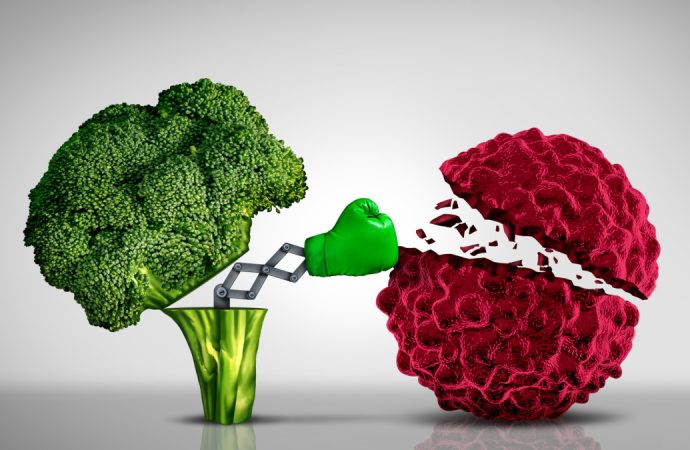Introduction In the Fighting Cancer against , nutrition plays a vital role in ensuring that your body remains strong and resilient. While the thought of meal planning and cooking may seem overwhelming, especially when dealing with the side effects of treatment, making informed dietary choices can significantly impact your ability to tolerate treatment and recover
Introduction
In the Fighting Cancer against , nutrition plays a vital role in ensuring that your body remains strong and resilient. While the thought of meal planning and cooking may seem overwhelming, especially when dealing with the side effects of treatment, making informed dietary choices can significantly impact your ability to tolerate treatment and recover effectively.
Understanding the Impact of Cancer on Nutrition
Cancer and its treatments can wreak havoc on your body’s nutritional status. Tumors may interfere with the body’s ability to absorb essential nutrients, while treatments such as chemotherapy and radiation therapy can cause side effects like nausea, vomiting, and changes in taste and appetite. As a result, many cancer patients struggle to maintain a balanced diet, which can further compromise their health and well-being.
Building a Balanced Plate
A balanced plate is essential for providing your body with the nutrients it needs to function optimally during cancer treatment. Focus on incorporating a variety of foods from all food groups, including lean proteins, whole grains, fruits, vegetables, and healthy fats. By diversifying your diet, you can ensure that you’re getting a wide range of essential vitamins, minerals, and antioxidants to support your body’s healing process.

Image by: yendex.com
Strategies for Managing Side Effects
- Small, Frequent Meals: Opt for smaller, more frequent meals to help ease nausea and prevent vomiting.
- Bland, Easy-to-Digest Foods: Choose bland and easy-to-digest foods to minimize gastrointestinal discomfort.
- Stay Hydrated: Drink plenty of fluids throughout the day to prevent dehydration and support your body’s natural detoxification processes.
- Ginger: Incorporate ginger into your diet, as it has natural anti-nausea properties and can help alleviate nausea.
- Medications: Take prescribed medications as directed by your healthcare team to manage nausea, vomiting, and other side effects.
- Mindful Eating: Practice mindful eating techniques, such as chewing slowly and savoring each bite, to help reduce nausea and improve digestion.
- Rest: Allow yourself plenty of rest and relaxation to help alleviate fatigue and support your body’s healing process.
Hydration: Staying Nourished and Hydrated
Staying hydrated is crucial for maintaining your overall health and well-being during cancer treatment. Adequate hydration can help flush toxins from your body, prevent constipation, and improve your energy levels. Aim to drink at least eight glasses of water per day, and consider incorporating hydrating foods like fruits and vegetables into your diet.

Image by: yendex.com
Incorporating Superfoods into Your Diet
Superfoods are nutrient-rich foods that are particularly beneficial for supporting your body’s immune system and promoting healing. Incorporating superfoods like berries, leafy greens, nuts, seeds, and fatty fish into your diet can help boost your intake of vitamins, minerals, and antioxidants. These foods can also help reduce inflammation and support your body’s natural detoxification processes.
Cooking Tips and Techniques
When cooking during cancer treatment, it’s essential to focus on gentle cooking methods that preserve the nutritional integrity of your food. Steaming, boiling, and baking are all excellent options for retaining vitamins and minerals while making your food easier to digest. Experiment with herbs, spices, and other flavorings to enhance the taste of your meals without adding extra calories or sodium.
Supplements: What You Need to Know
While it’s always best to obtain nutrients from whole foods, some cancer patients may benefit from dietary supplements to fill nutritional gaps. However, it’s essential to consult with your healthcare team before taking any supplements, as certain vitamins and minerals can interact with cancer treatments or medications. Your healthcare provider can help determine which supplements are safe and appropriate for you based on your individual needs and treatment plan.

Image by: parade.com
Mindful Eating Practices
Practicing mindfulness during meals can help you reconnect with your body’s hunger and fullness cues, allowing you to eat more intuitively and enjoy your food more fully. Take the time to savor each bite, paying attention to the flavors, textures, and sensations in your mouth. Eating slowly and chewing your food thoroughly can also help prevent digestive discomfort and promote better nutrient absorption.
Meal Planning and Preparation
Meal planning and preparation are essential for ensuring that you have nourishing meals and snacks readily available during cancer treatment. Take some time each week to plan out your meals and make a grocery list of nutritious ingredients. Consider batch cooking and freezing meals for later use, or enlist the help of friends and family members to assist with meal preparation.
Social Support and Community Resources
Don’t hesitate to reach out to your support network for assistance with meal planning and preparation. Friends, family members, and support groups can offer practical tips, emotional support, and encouragement to help you stay on track with your nutritional goals. Additionally, many communities offer resources such as meal delivery services or nutrition counseling for cancer patients, so be sure to explore all of your options. Explore More About (Music Impacts On Health)
Physical Activity: Supporting Overall Health
Physical activity is an essential component of a healthy lifestyle, even during cancer treatment. Engaging in gentle exercises like walking, yoga, or tai chi can help improve your strength, flexibility, and overall well-being. Talk to your healthcare team about incorporating physical activity into your treatment plan, and be sure to listen to your body and rest when needed.

Image by: yandex.com
Coping with Emotional Eating
Emotional eating is a common coping mechanism for many cancer patients, but it can lead to unhealthy eating habits and further exacerbate emotional distress. Instead of turning to food for comfort, try finding alternative ways to manage stress and emotions, such as journaling, meditating, or talking to a therapist. Remember that it’s okay to seek support when you need it, and that you’re not alone in your journey.
Monitoring Progress and Adjusting Diet
Throughout your cancer treatment, it’s essential to monitor your progress and make adjustments to your diet as needed. Keep track of your symptoms, energy levels, and dietary habits in a journal, and discuss any concerns or changes with your healthcare team. By staying proactive and engaged in your nutritional care, you can better support your body’s healing process and improve your overall quality of life.
| Aspect | Traditional Diet | Cancer-Fighting Diet |
|---|---|---|
| Plate Composition | Varied diet with minimal focus on specific nutrients | Balanced plate with emphasis on essential nutrients |
| Strategies for Side Effects | Limited consideration | Proactive management to alleviate discomfort |
| Hydration | General advice on staying hydrated | Importance stressed with tips for increasing intake |
| Superfoods | Not emphasized | Highlighted as beneficial for immune support |
| Cooking Techniques | Standard cooking methods | Gentle methods to preserve nutrients and aid digestion |
| Supplements | May not be addressed | Discussed with caution and recommendation for consult |
| Mindful Eating | Not emphasized | Encouraged for better digestion and enjoyment |
| Meal Planning | Standard planning tips | Specific tips for streamlining during treatment |
| Support & Resources | May briefly mention | Emphasized for practical and emotional assistance |
| Physical Activity | Mentioned in general | Specific suggestions for gentle exercises |
| Emotional Eating | May not be addressed | Discussed with alternative coping strategies |
| Monitoring & Adjustments | May be mentioned briefly | Highlighted for proactive management during treatment |
Conclusion
Eating well while fighting cancer is essential for maintaining your strength, energy, and overall well-being throughout your treatment journey. By focusing on building a balanced plate, managing side effects, and practicing mindful eating habits, you can nourish your body and optimize your health during this challenging time. Remember that every small step you take towards better nutrition is a victory in itself, and that you deserve to prioritize your health and well-being as you navigate this journey.
















